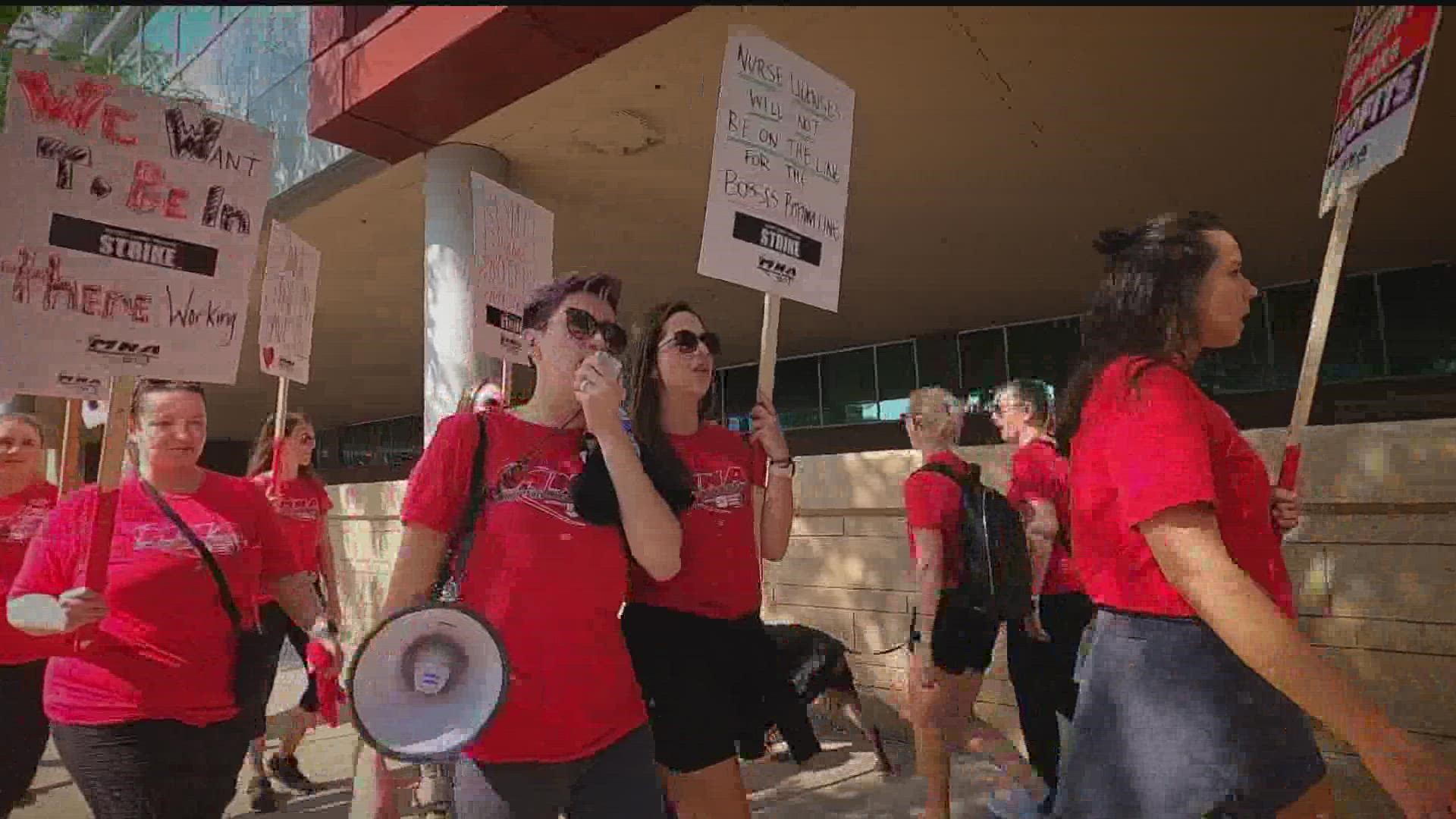MINNEAPOLIS — Some nurses are set to head back to work as early as 6:30 p.m. Wednesday, putting an end to the largest nurses strike in Minnesota history.
Other nurses are slated to head back to work at 7 a.m. Thursday.
The strike will have lasted three days with some 15,000 nurses walking off the job, impacting 15 different hospitals.
With no new negotiations scheduled this week between the Minnesota Nurses Association and some hospital leaders, the big question still lingering is: What happens next?
"I think it’s early to expect either side to say, 'OK, you win,'" said Carlson School of Management professor John Budd. "They do need to find some common ground, but both sides want that compromise to favor themselves."
Nurses have been working without a contract since March. There are eight different contracts between the seven hospital systems involved in the strike. The hospital leaders are asking the union to agree to use a mediator.
Professor Budd says even a three-day strike can be impactful when it seems the two sides are still very much apart.
"It can remind both sides that strikes don’t really benefit anyone," said Budd. "It can also help solidify solidarity among the striking nurses and make them feel powerful and committed and it imposes costs on the employer."
The two sides are hammering out better security, more staff and a 30% salary increase. Some hospital leaders have admitted that the raise is impossible, while others have countered up to 12%.
"Usually negotiators are talking either across the table or they're talking publicly, and the more they talk publicly, that's a bad sign because they're not talking to each other," said Budd.
Another strike is possible, but the nurses have to repeat the process and earn the majority of a strike authorization vote, followed by a 10-day cooling-off period.
Professor Budd says that recurring strikes can diminish not only public support but federal legal protections, too.
"It's protected to go out on a short strike; it's protected to go on a long strike," he said. "It's not necessarily protected to keep striking over and over for the same issue."
At the time of publication, KARE 11 confirmed the Twin Cities Hospitals Group, which includes four hospital systems, doesn't have any new bargaining dates on the calendar but expects that to happen next week. Their spokesperson said:
There are no firm dates confirmed yet, but they are likely to be confirmed in the days following the strike. Most likely next week.
Essentia Health is reporting the same thing, writing in an email:
"We will welcome all our nurses back at 7 a.m. Thursday. We look forward to returning to the bargaining table because that’s where solutions occur and cannot speculate on the MNA's future actions."
When reached for comment, a spokesperson from St. Luke's said:
“The next negotiation date has not been set. St. Luke’s remains willing to return to the negotiations table.”
Finally, we received this statement from Allina:
We are grateful to our care teams for their extraordinary effort this week and their dedication every day to providing safe, high-quality care to the communities we serve.
Striking MNA nurses will return to work at United Hospital in St. Paul this evening at 6:30 p.m. and tomorrow morning at 7:00 a.m. at our Abbott Northwestern Hospital and Mercy Hospital campuses in Coon Rapids and Fridley.
Now, we look forward to returning to the bargaining table. We are scheduling a bargaining session next week to continue working with the Minnesota Nurses Association on a contract agreement that recognizes both the contributions of our nurses and our commitment to our patients, and communities.
Watch more local news:
Watch the latest local news from the Twin Cities in our YouTube playlist:

